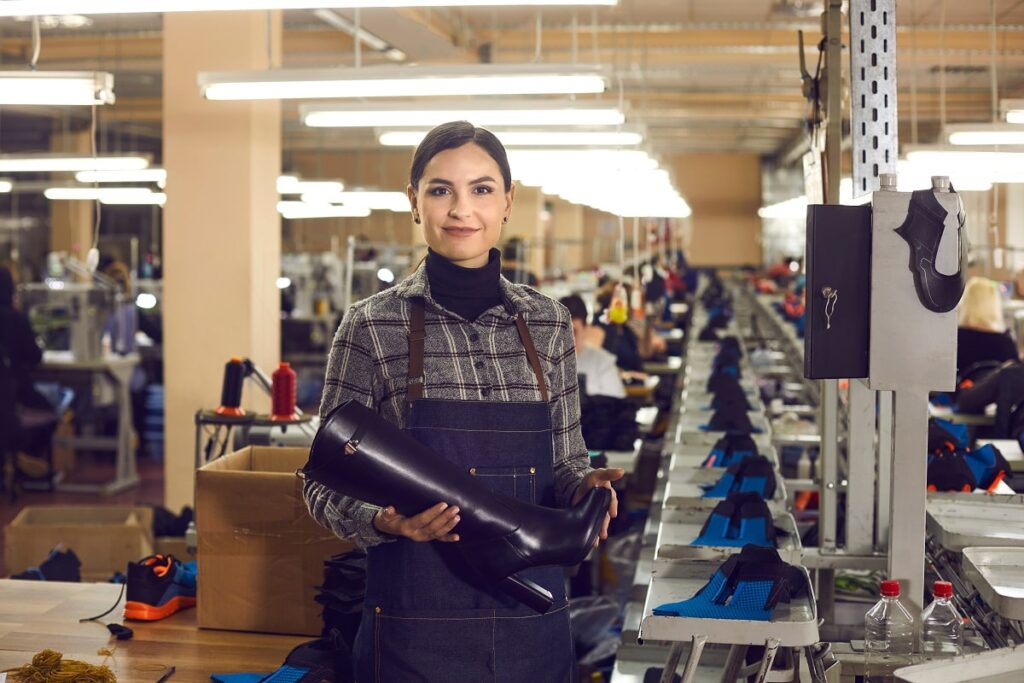The footwear industry is a dynamic and thriving sector that encompasses a wide range of opportunities for individuals with a passion for shoes and fashion. From designing and manufacturing to marketing and sales, the footwear industry offers diverse career paths that cater to different skill sets and interests. In this article, we will delve into the top 10 jobs in the footwear industry, exploring the roles, responsibilities, and skills required for each position.
1. Footwear Designer
Footwear designers are the creative minds behind the shoes we wear. They are responsible for conceptualizing and creating innovative shoe designs that align with current fashion trends and consumer preferences. A footwear designer must have a keen eye for detail, a strong understanding of materials and construction techniques, and the ability to translate ideas into visually appealing designs. Collaboration with manufacturers and product developers is essential to bring their designs to life.
2. Product Developer
Product developers play a crucial role in the footwear industry by overseeing the production process from design concept to final product. They work closely with designers, materials specialists, and manufacturers to ensure that shoes are produced according to quality standards, timelines, and budget constraints. Product developers need strong project management skills, attention to detail, and a deep understanding of the footwear manufacturing process.
3. Materials Specialist
Materials specialists are responsible for sourcing and selecting materials for shoe production based on performance, sustainability, and design requirements. They stay current on the latest material innovations and trends in the industry to ensure that shoes are both aesthetically pleasing and functional. Materials specialists work closely with designers and product developers to choose the right materials that align with the brand’s vision and values.
4. Brand Manager
Brand managers oversee the marketing and branding strategy for footwear collections, ensuring that the brand’s identity is communicated effectively to the target audience. They collaborate with designers, marketing teams, and retailers to create compelling brand stories and campaigns that resonate with consumers. Brand managers need strong communication skills, strategic thinking, and a deep understanding of consumer behavior and market trends.
5. Pattern Maker
Pattern makers play a vital role in the footwear industry by developing patterns and prototypes based on design sketches and technical specifications. They work closely with designers to ensure that the fit, comfort, and functionality of the shoes meet quality standards. Pattern makers need excellent technical skills, attention to detail, and the ability to interpret design concepts into tangible products.
6. Retail Buyer
Retail buyers are responsible for selecting and purchasing footwear products for retail stores or online platforms. They analyze sales trends, consumer demand, and market data to make informed buying decisions that drive profitability and customer satisfaction. Retail buyers need strong negotiation skills, analytical abilities, and a keen eye for emerging trends in the footwear industry.
7. Footwear Merchandiser
Footwear merchandisers play a key role in maximizing sales and profitability by planning and executing merchandising strategies for footwear products. They collaborate with designers, buyers, and marketing teams to develop product assortments, pricing strategies, and promotional campaigns that drive consumer engagement and sales. Footwear merchandisers need strong analytical skills, creativity, and a deep understanding of consumer behavior.
8. Footwear Marketing Manager
Footwear marketing managers are responsible for developing and implementing marketing strategies that promote footwear products and enhance brand visibility. They oversee advertising campaigns, social media initiatives, and promotional events to drive brand awareness and customer engagement. Footwear marketing managers need strong leadership skills, creative thinking, and a deep understanding of digital marketing trends.
9. Footwear Sales Representative
Footwear sales representatives play a vital role in driving revenue by selling footwear products to retailers, wholesalers, and consumers. They build relationships with clients, showcase product features and benefits, and negotiate sales contracts to meet sales targets and revenue goals. Footwear sales representatives need strong interpersonal skills, sales acumen, and a passion for footwear products.
10. E-Commerce Manager
E-commerce managers are responsible for overseeing online sales platforms and strategies for footwear products. They manage website content, optimize product listings, and analyze online sales data to drive conversion and revenue growth. E-commerce managers need strong technical skills, knowledge of e-commerce platforms, and a deep understanding of online consumer behavior.
Conclusion
The footwear industry offers a wealth of opportunities for individuals with a passion for shoes, fashion, and business. Whether you are a creative designer, a strategic marketer, or a sales-savvy professional, there is a role for you in this exciting and dynamic industry.
Key Takeaways:
- The footwear industry is dynamic, fast-growing, and offers diverse opportunities.
- Success requires creativity, technical knowledge, and awareness of fashion trends and consumer preferences.
- Professionals need to understand shoe design, materials, production processes, and market demands.
- Collaboration across teams (design, production, marketing, sales) is essential.
- Innovation, digital strategies, and strong branding are critical for staying competitive.
To further enhance your knowledge and skills in the footwear business, consider exploring the FIT Footwear Business Foundations online course and certificate program offered by Yellowbrick. This program can equip you with the tools and insights needed to excel in the dynamic world of shoe design and entrepreneurship.








